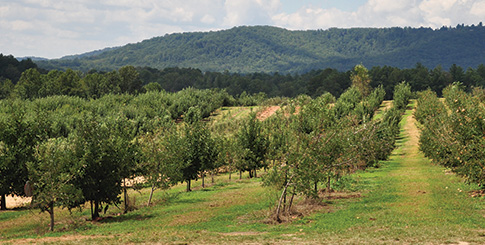Last year’s drought affected some South Carolina crops, but supply was augmented by tomatoes from Tennessee’s lower elevations which began harvesting in March. A silver lining to last season’s drought, says Sutton, was better prices for the region’s growers and distributors.
And just as produce flows across state lines, so do buyers. North and South Carolina sellers always look forward to the excitement that accompanies spring and summer product, drawing buyers from Georgia, Tennessee, Kentucky, West Virginia, and as far away as Indiana as seasonal supply trickles in.
“The produce economy is pretty vibrant now,” shares Bailey, whose namesake company specializes in hot peppers. “We’ve seen strong movement in North Carolina and are receiving more orders.”
Despite the lack of skilled workers in other parts of the country for harvests, it has not been a problem at all for R & H Produce Company, Inc. in Raleigh. “Labor has been easy to get,” comments Ronnie Yokeley, R & H’s president. “The unemployment rate is higher than what they say it is. Help is easy to find: you hire one, there are five more waiting in line.”
To maintain supply, wholesalers also import product. Many find it easier to work through brokers and do not import from North or South Carolina’s ports, as they don’t handle much produce according to Ford. Instead, distributors work with brokers bringing cargo in from Philadelphia (PA), Wilmington (DE), Norfolk (VA), and Miami (FL) ports. retail bonanza
Whatever the size or location, it seems most retailers in both North and South Carolina are enjoying plentiful business. Longtime grocers and transplants are enjoying success. The Lowes chain is new to South Carolina while Wegmans is planning to enter the crowded North Carolina market. Aldi, Food Lion, Harris Teeter, and Publix are among the established chains, and all are opening new stores in the sibling states.
The booming retail business benefits both wholesalers and grower-shippers. “From a supplier viewpoint, it seems there are many more retailers entering the market,” notices Laura Hearn, marketing director at Nash Produce, LLC, in Nashville, NC. While stepped-up competition could be worrisome, she says, “Each seems to have a unique voice and footprint.”
Last year, Publix announced plans to rapidly increase its presence in Charlotte, NC. Then came the arrival of Lidl in mid-June. The German discounter opened its first stores in North Carolina, followed by locations in South Carolina and Virginia.
Most independents have managed to do well by not competing directly with the larger chains or big-box stores by emphasizing community involvement.
“The independents are holding their own to this point,” comments Titan Farms’ Johnston. “You have multiple retailers that touch all different areas. It’s just a matter of right-sizing the marketplace to the independents’ consumer demographics.”



